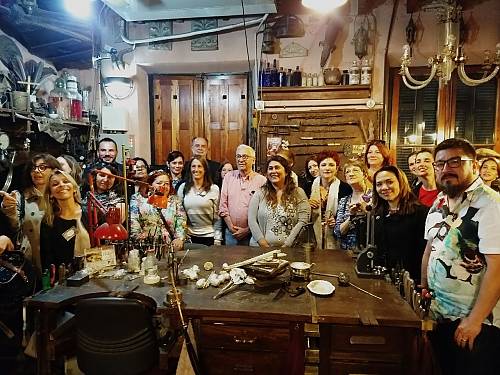Regional meeting on intangible heritage and tertiary education
UNESCO recognizes the important role that tertiary education institutions play in training future decision-makers, planners and administrators to work in the field of safeguarding intangible cultural heritage. For this reason, following a Regional Symposium in Asia-Pacific in 2015 on integrating intangible cultural heritage in tertiary education, UNESCO is now expanding its work on this topic to Latin America and the Caribbean.
The UNESCO Office in Montevideo held a regional meeting on Cooperation mechanisms for intangible heritage and higher education in Buenos Aires, Argentina from 21 to 22 November, 2017. The meeting was held in cooperation with FLACSO (Latin American Social Sciences Institute), CRESPIAL (Regional Center for the Safeguarding of the ICH of Latin America) and IESALC (International Institute for Higher Education in Latin America and the Caribbean) and the UNESCO Office in Havana, Regional Office for Culture for Latin America and the Caribbean.
Forty academics, managers and decision makers from thirty-six universities took part in the event coming from nine countries across the region: Argentina, Brazil, Chile, Colombia, Costa Rica, Honduras, Mexico, Dominican Republic and Uruguay.
The meeting promoted exchange and reflection on intangible heritage and higher education, with a particular focus on tertiary level cultural management programmes. Participants discussed the realities, needs, experiences, specificities, and expectations of universities in relation to the teaching of intangible heritage as an academic discipline.
This event benefited from financial support from the Fund for the Safeguarding of the Intangible Cultural Heritage.
Meeting:
-
Regional meeting: Cooperation mechanisms for intangible heritage and higher education (21 November 2017 – 22 November 2017)
